‘Familiar Touch’ examines the fragility and wonder of memory
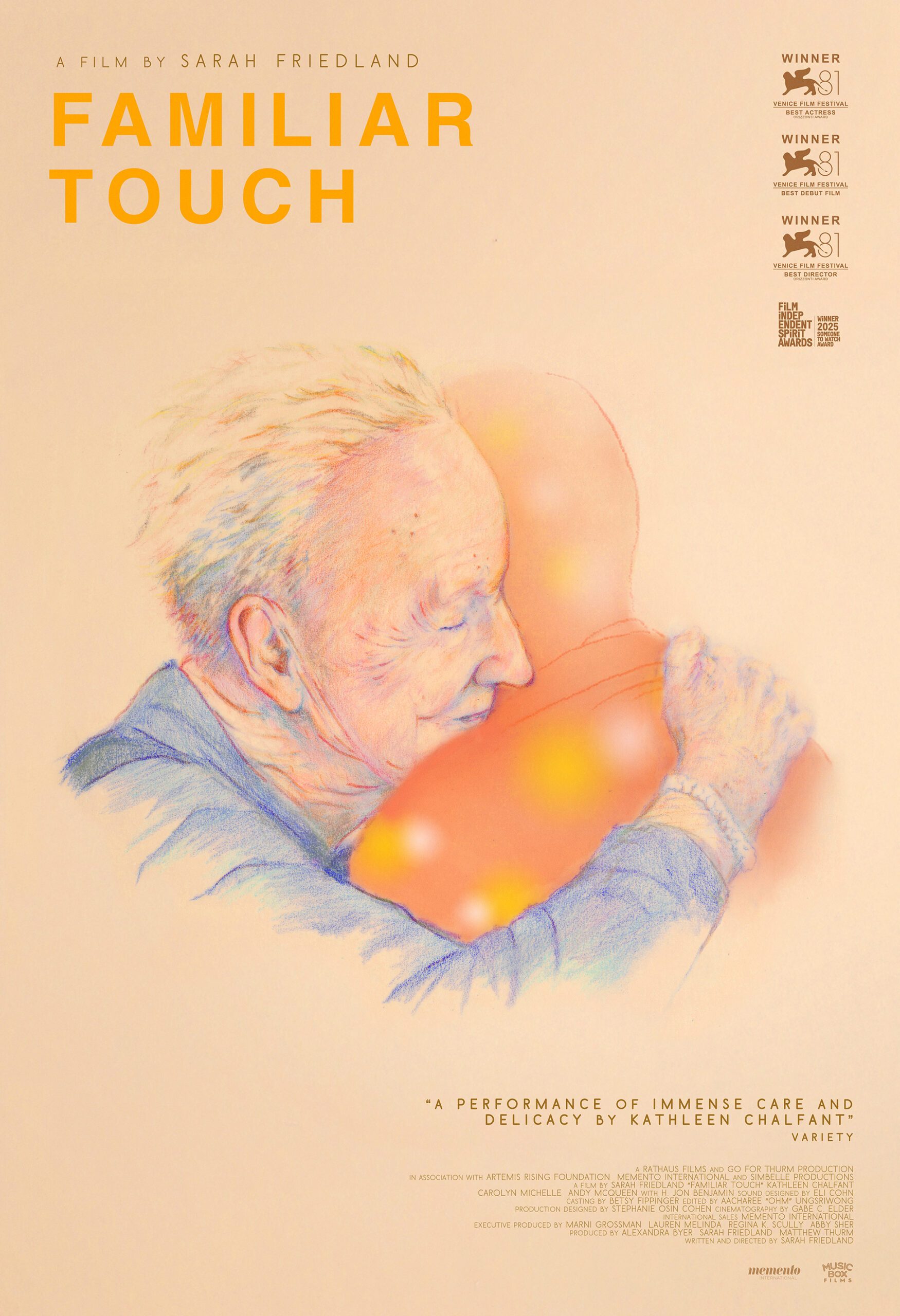
“Familiar Touch” (2024 production, 2025 release). Cast: Kathleen Chalfant, H. Jon Benjamin, Carolyn Michelle, Andy McQueen, Mike G., Joahn Webb. Director: Sarah Friedland. Screenplay: Sarah Friedland. Web site. Trailer.
Steve is patient and sensitive in his response, as if he were expecting what transpires. In fact, as soon becomes apparent, he was obviously prepared for what happens, his mother having exhibited behavior like this for some time. However, circumstances have declined to the point where it’s now time for a change. Even though Ruth may still be rather spritely physically, her memory has slid to where she no longer even recognizes her own son. Given that, Steve can’t help but wonder how much longer Ruth would be able to realistically care for herself without cause for concern.
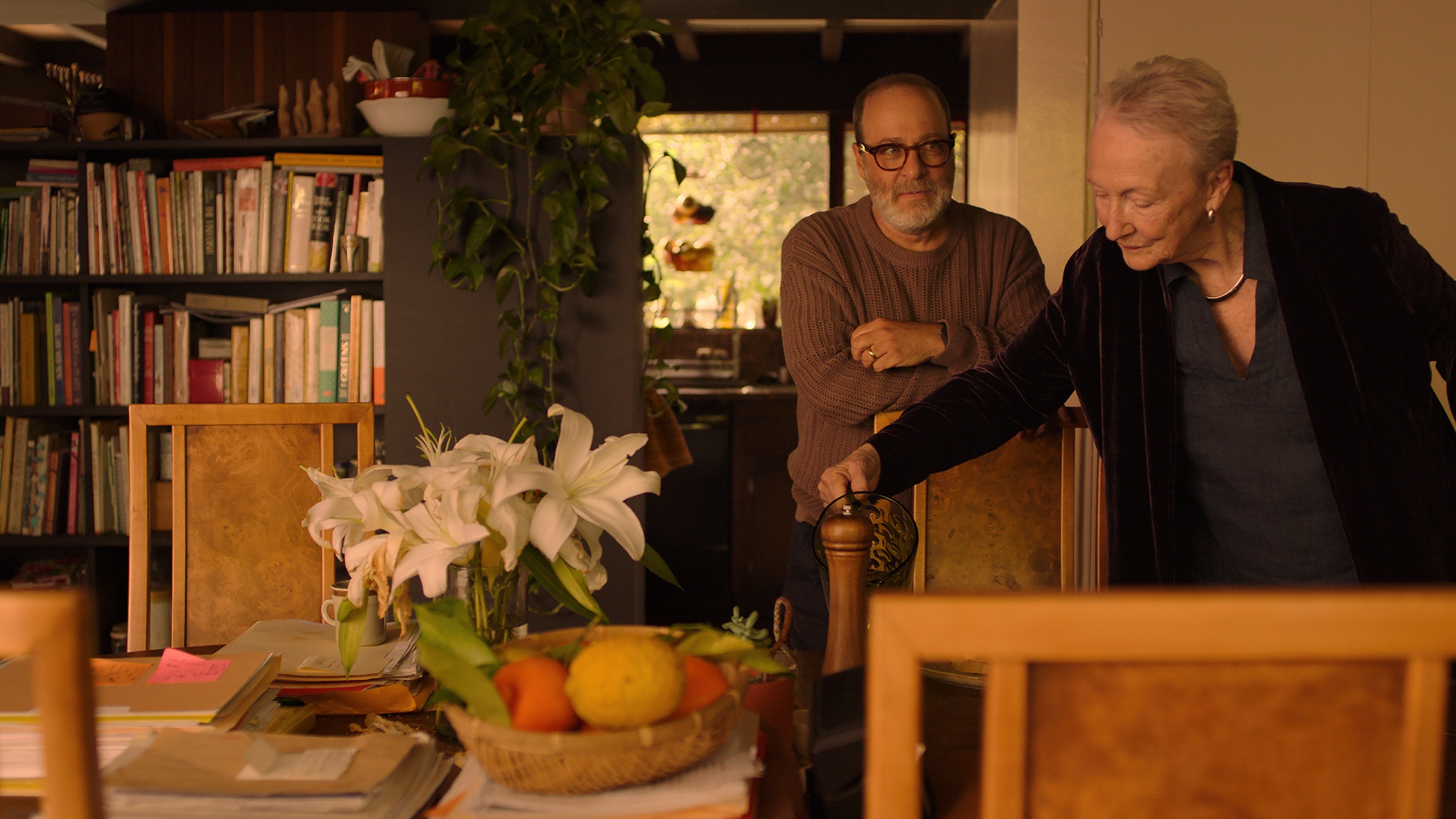
Upon finishing lunch, Steve suggests that they go for a little ride. Ruth happily agrees, although she’s unaware of their destination: an assisted living facility that is about to become her new home. Needless to say, Ruth is perplexed as to why Steve has brought her here. He reminds her that they had visited the facility together once before and that she had said she liked it, approving it as an option for her to move to when her condition made living on her own problematic. She remembers none of this, prompting her to become confused when Steve says his goodbyes and leaves her in the company of her new caretaker, Vanessa (Carolyn Michelle).
Ruth’s adjustment is initially challenging. She feels somewhat indignant at being “unceremoniously” dropped off in this alien location, She’s unfamiliar with her new surroundings (thinking, for example, that the facility’s resident dining room is a restaurant and asking a server to show her a menu) and unaware of the many new strangers now in her life. Admittedly, that could be difficult for virtually anyone, let alone for someone with impaired cognitive abilities. However, as soon becomes apparent, Ruth’s memory is in a greater state of decline than she’s aware of, an indication that her relocation to this facility truly is for her own safety and well-being, even if she doesn’t realize it.
During her first visit with the facility’s resident physician, Brian (Andy McQueen), Ruth stridently attempts to prove her infallible lucidity by reciting specifics about her life, including a street address in Brooklyn, which turns out to be the home where she grew up, not the California ranch house from which she recently moved. And, one morning not long thereafter, she shows up in the facility’s kitchen ready “for work,” convinced she is about to perform her duties as a food preparer, a job she held years before. In both of those instances, she’s certain in her awareness of who she is, what she does and where she lives, despite the incongruity of these “facts” in light of her surroundings.
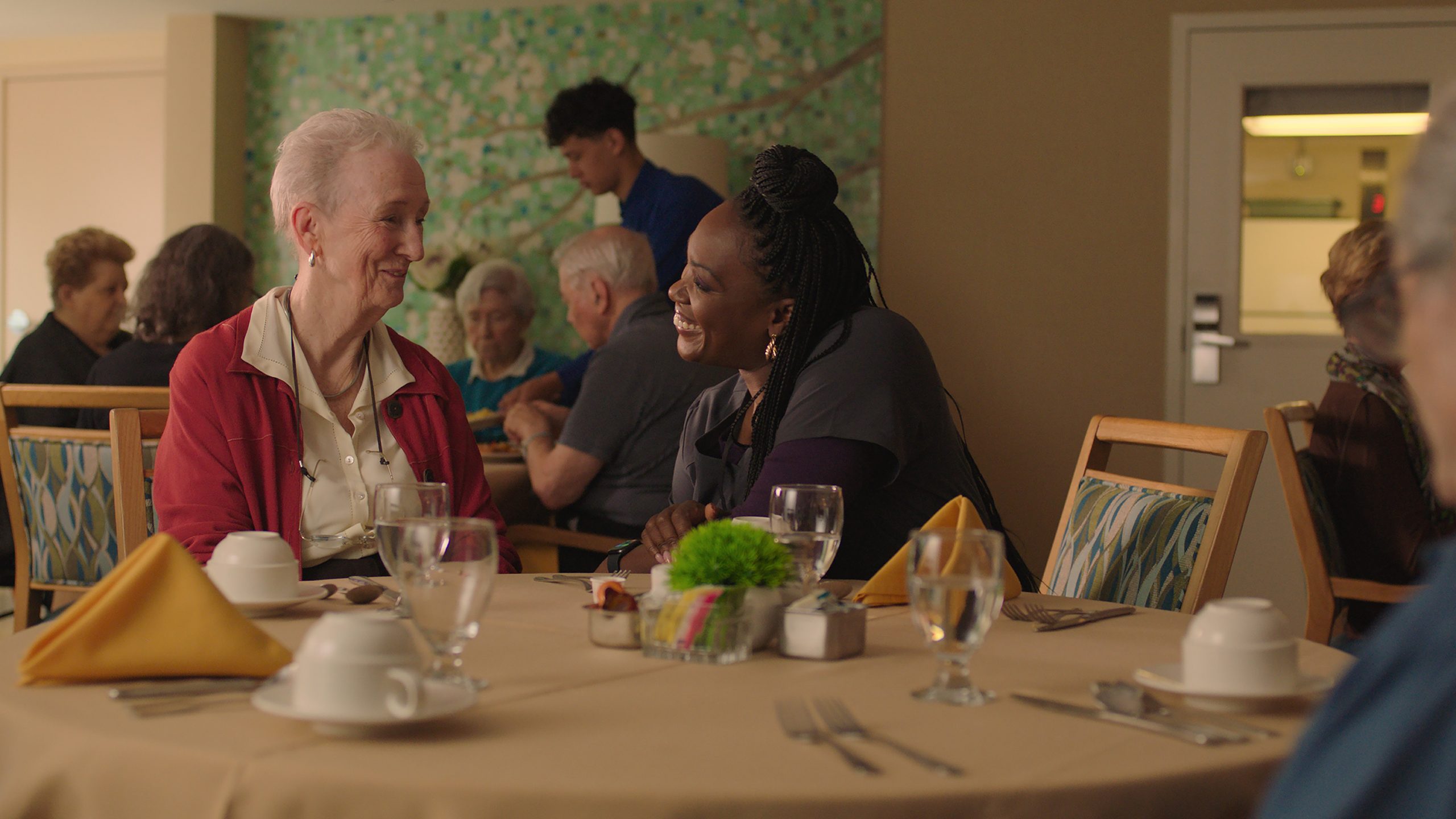
As time passes, Ruth slowly comes to terms with her situation, though not without difficulties. While she gradually becomes familiar with her principal caregivers, her fellow residents and her surroundings, she grows reasonably comfortable with her new home, even if she experiences periodic memory lapses. The film follows her as she undergoes these experiences, depicting her reactions, as well as those of her family and the facility’s staff. She may no longer be living the life she once knew, in part because she no longer remembers it and in part because she’s not entirely clear why she finds herself in these new and unfamiliar circumstances. As a consequence, she’s having to shift her outlook and acquaint herself with a new set of beliefs about what constitutes her existence. This is not an easy change by any means. However, Ruth does her best to understand and comprehend the nature of her new reality, how to make the most of it and what drives it, no matter how strange and foreign it may seem compared to what she once believed about her world.
Beliefs play a key role in understanding the nature of our existence given their impact in shaping it, a product of the conscious creation process, the philosophy responsible for this outcome. It’s unclear how many of us are familiar with, or have even heard of, this school of thought, and it can be especially difficult to grasp for someone who’s afflicted with the condition Ruth’s experiencing considering the inherent uncertainty that likely clouds her thinking and beliefs. However, if, like Ruth, we’re to find our way through the maze of an entirely new existence, we must strive to get a handle on our beliefs, no matter what hindrances may stand in our way.
As is the case with many of us, we often fail to recognize – either consciously or subconsciously – the role of these powerful and persistent resources in memory formation and retention. But those qualities often play a significant part in terms of which memories last the longest, the strength of these elements frequently enabling their degree of persistence. Consider, for example, Ruth’s recollections of her distant past, which appear to hold on steadfastly. However, for the memory-impaired, this often changes with age over time, with recent remembrances failing to register. Recall tends to become selective, even “random,” with a tendency for recollections that are strongest to be the ones that affected individuals are more likely to retain as others evaporate into the ether.
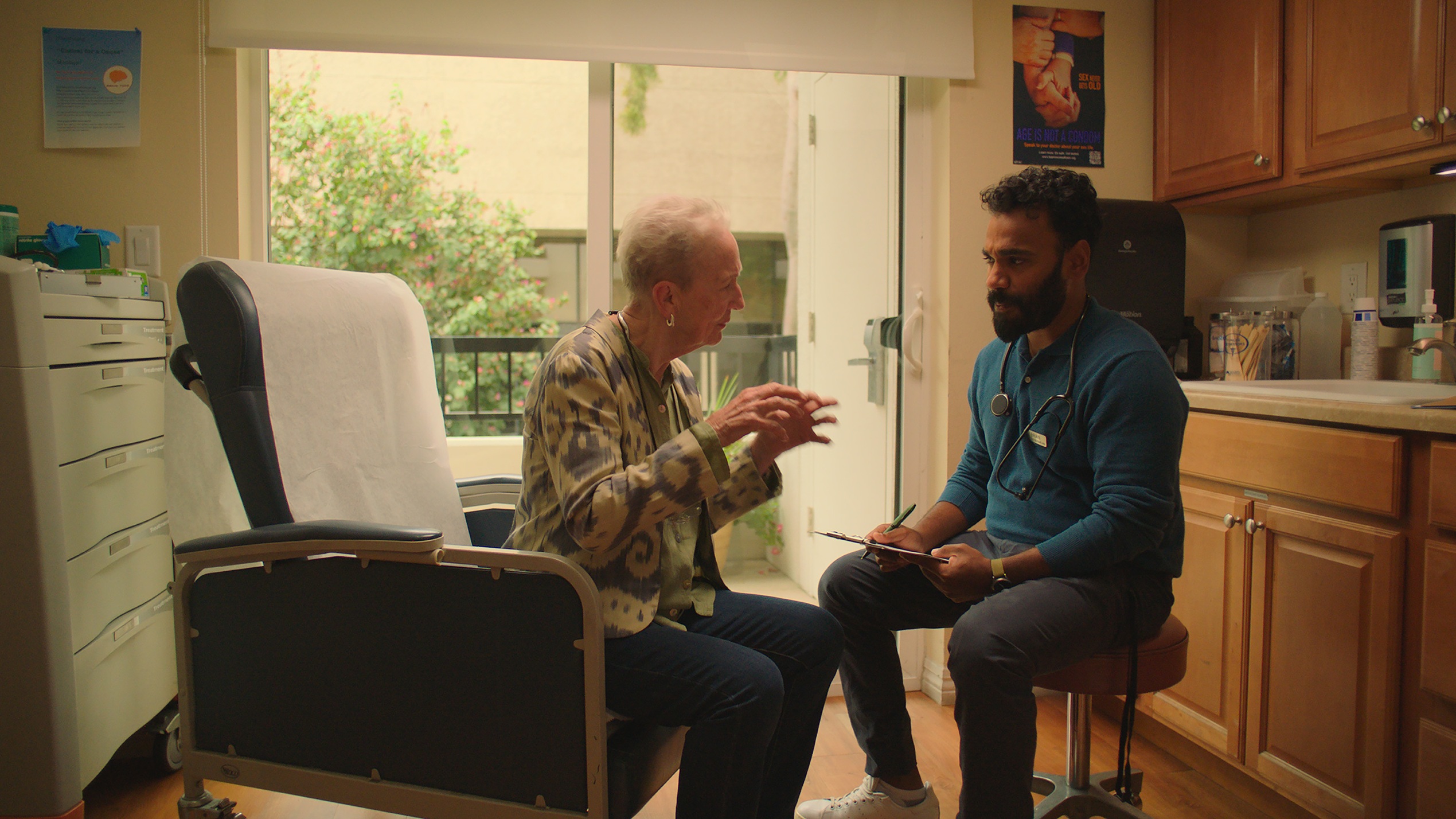
Why do these memories tend to persist? There could be any number of reasons for this. Aside from these recollections inherently being the strongest (backed by beliefs that, in turn, are also the strongest), their retention could be tied to pleasant experiences from the past. We may well be more likely to hold on to memories if they’re associated with good times. That seems to be the case with Ruth, for example, when she shows up for work in the kitchen, her reporting for duty representing a present-day continuation of a memory-based experience that once gave her great joy and fulfillment.
By contrast, the loss of other memories could be a way of eliminating recollections of unpleasant experiences. For instance, on several occasions, Ruth makes references to her husband, indicating a belief that she’s still married to him, even though he had long since died. Her failure to remember his death could well be related to a desire to rid herself of the beliefs associated with the memory of his passing.
At the risk of playing devil’s advocate, if beliefs are truly employed to preserve pleasant memories and rid ourselves of unpleasant ones, can we truly blame anyone for making use of them in this way (even if subconsciously) in shaping the nature of our existence? Indeed, this may seem like a rather extreme way of managing our memories, but, if this practice provides us with the result we seek, can it truly be faulted? When we consider the pleasantries and unpleasantries involved, it may be seen as a viable solution.
This approach to memory management could also be viewed as a way of coping with the onset of age, particularly the loss of mental and physical faculties that often accompanies the aging process. It can manifest in myriad ways, too, such as the introduction of an entirely new sense of self. One’s personality may go through a transformation in which memories of one’s old self disappear almost entirely in favor of something new. For example, I once knew a memory-impaired elderly woman who was depressed over growing old and frail, but, over time, her personality changed to something new and surprisingly vibrant, with a new identity and a completely different outlook on life. Her new persona was characterized by happiness and enjoyment, even leading to the launch of a new relationship with one of her living facility’s eligible bachelors. One might contend that her joyful new existence was certainly preferable to the sad, hopeless outlook she held previously, one that she managed to completely forget in favor of her new perspective.
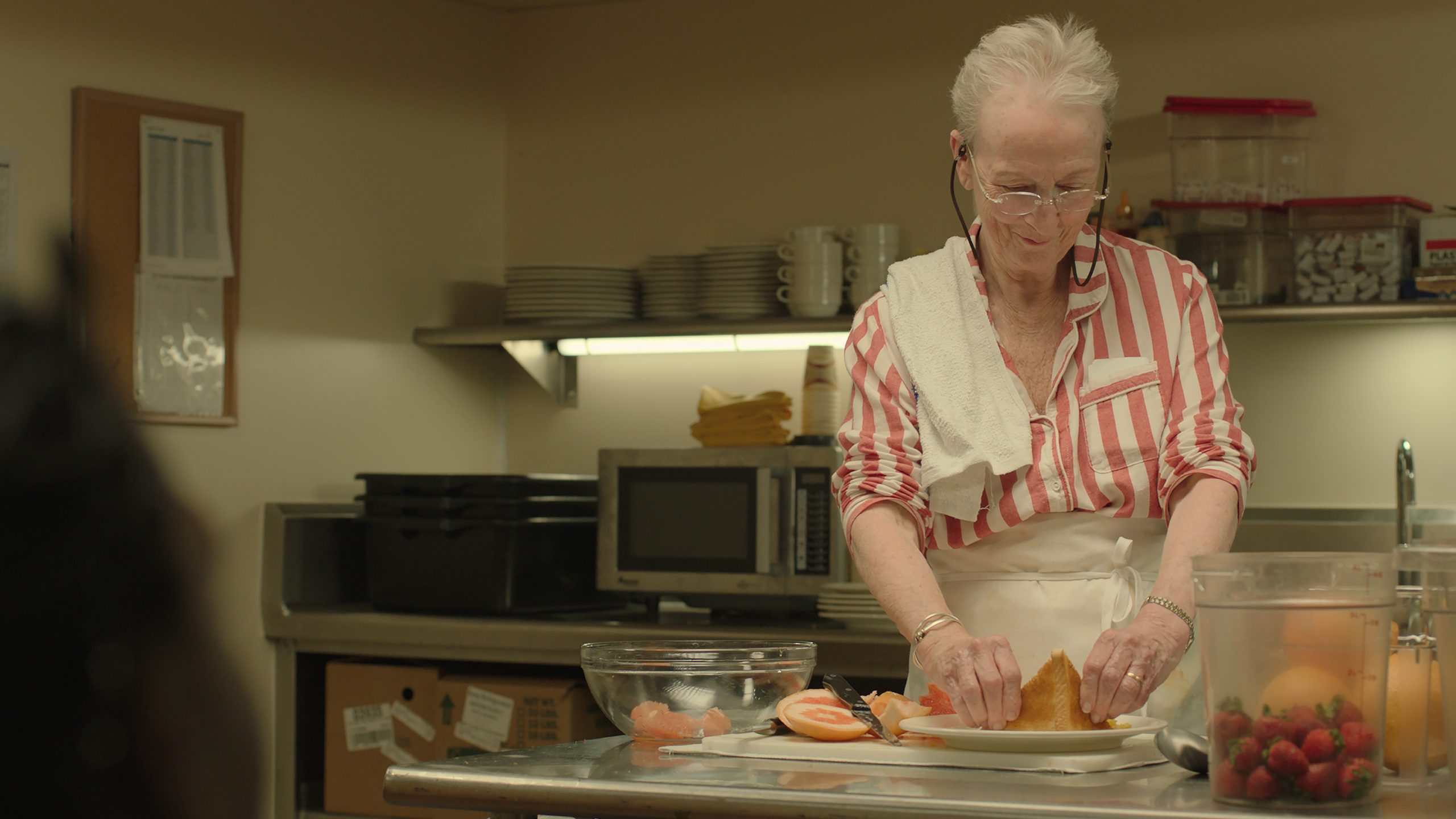
Of course, when it comes to these approaches, there’s also the collateral damage to be considered. In adopting them, we may not have adequate control over which memories are retained and which ones are lost. Eliminating painful recollections from our existence may help us cope with these distressing memories, but their deletion from our consciousness may also sweep away other, more readily useful remembrances that can leave us lost in addressing matters of everyday life, including those of a highly practical nature. In addition, wholesale lifestyle changes like this can evoke new beliefs, such as fear and confusion, reactions that can produce both immediate results and lingering memories, conditions that can lead to long-term implications.
Taken collectively, these considerations all point to the wonder and fragility of memory, qualities not to be taken lightly. Memory provides us with a sense of continuity about our existence, much of it dependent on what we believe about its nature. But, when our capacity to effectively manage it becomes challenged, that stability and predictability can become lost, potentially making our maneuvering through life frustrating and difficult. This can be especially troublesome when it comes at the end of life, a time when we would like to believe that things should get easier and more manageable – not troubling just to get through everyday activities like caring for ourselves or meeting with family members we no longer remember. No wonder it is often said that we should cherish our memories.
These circumstances thus shine a bright light on the challenges faced by those who care for the memory-impaired. Relatives – especially the children of those affected – often face a difficult time when dealing with family members affected by this condition. In addition to watching their loved ones deteriorate physically, they also witness their cognitive abilities decline, particularly their failure to recognize those close to them. The film illustrates this through the quiet distress Steve experiences as he watches his mother slip away as she becomes a mere shadow of the woman who loved and raised him. Individuals undergoing ordeals like this often need just as much support as their relations as they seek to cope with a situation that, sadly, only goes from bad to worse over time (and frequently quite slowly at that).
Thankfully, both patients and their families can be grateful for the support they receive from their caregivers, individuals of remarkable patience and fortitude in their handling of those affected and in providing guidance to their families. “Familiar Touch” pays a fitting tribute to the dedication and diligence of these providers as they do their jobs and serve as rays of hope during one of the most difficult times of life that these individuals and their loved ones will ever go through. The film shows the tremendous levels of compassion and understanding associated with this kind of work, particularly when it comes to frankly but tactfully explaining how caregivers and their patients are each experiencing fundamentally different truths when it comes to the nature of their respective realities, a calling that requires them to be honest and forthright while simultaneously exhibiting a degree of mutual respect, tolerance and acceptance that many of us may find challenging to willingly extend under circumstances like these.
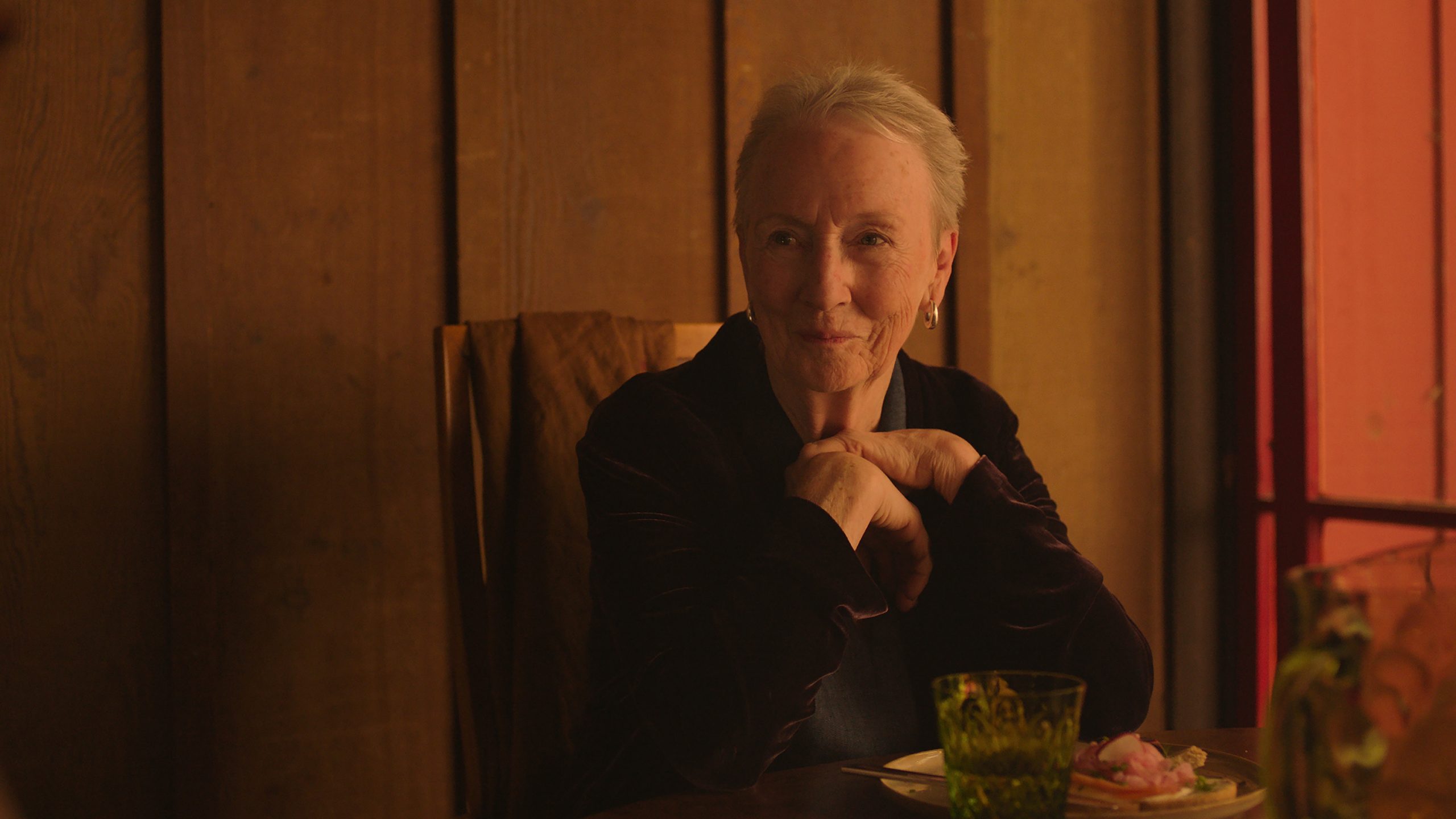
Age-related memory loss can be a harrowing, debilitating experience for the individuals suffering from it, as well as their families, friends and associates. And, in this superb new release, writer-director Sarah Friedland examines the various states of mind that the memory-impaired can go through, as well as the array of reactions that they experience in coming to terms with their circumstances. In telling Ruth’s story, the filmmaker expertly shows, rather than tells, viewers what the protagonist is undergoing, driving home the impact of what this heartbreaking condition can yield. At the same time, though, the picture also celebrates all of the little victories that can occur in the course of caring for patients like Ruth, such as those fleeting moments of sparkling recognition, when everything comes back to them, even if only transitory in nature. All of these moments are brought to life with a remarkable level of authenticity, too, having been filmed largely on the premises and in the company of the residents and staff of California’s Villa Gardens retirement community, a facility established 90 years ago by Ethel Percy Andrus, the founder of AARP.
While this release admittedly begins to slow somewhat as it progresses, it generally holds audience interest well without becoming schmaltzy, manipulative or predictable, quite a feat in a story like this, which could easily fall prey to these traits if left in lesser-skilled hands. For its efforts, “Familiar Touch” has been generously rewarded with numerous award nominations and wins at various film festivals, as well as the 2025 Independent Spirit Awards’ Someone To Watch Award for the director. As the population continues to grow old and more of us (especially children of the aged) are left to address scenarios like this, this production presents an excellent look at what those affected might be up against, making for an engaging and informative online watch, one that could provide insights that make a difference when the time comes to make the hard decisions of how to care for those who are no longer able to care for themselves – and when the wonder and fragility of memory becomes all too apparent.
Copyright © 2025, by Brent Marchant. All rights reserved.



